2021 IN REVIEW
Out of the frying pan into the fire – but even the darkest storm clouds have silver linings
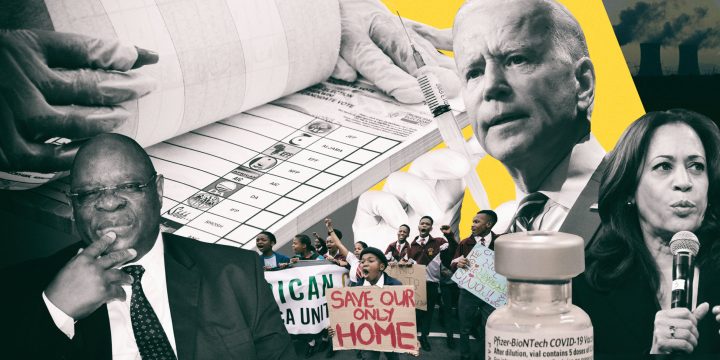
There’s no doubt that 2021 was a terrible year, but it wasn’t as bad as we think it was.
The United Nations (UN) had high hopes for 2021. It would be, among other lofty goals, the International Year of Peace and Trust, the International Year of Creative Economy for Sustainable Development and the International Year of Fruits and Vegetables.
“International peace and trust” turned out to be a barely visible quality in a year that kicked off with rich-world vaccine-hoarding and looked set to end with sub-Saharan Africa effectively sealed off from the rest of the globe as the price paid for South Africa’s transparency about Covid-19 variant detection. To get a sense of the health of the “creative economy”, you just had to tune into the scenes in March of desperate South African artists staging a sit-in at the National Arts Council.
Even fruits and vegetables could not escape the taint of the year, with a South African potato shortage reported in October as a result of unseasonably bad harvest weather. For 2022, the UN might want to lower its expectations.
South Africans have truly been put through the wringer by 2021, which sometimes felt like a jump from 2020’s frying pan into the fire. While dealing with the ongoing trauma and stress of the pandemic and facing up to its associated economic crisis, the middle of the year brought one of the lowest points of South Africa’s democratic history in the spree of looting, violence and destruction that hit Gauteng and KwaZulu-Natal with the force of a tsunami.
We encountered the gravest of public service betrayals in the form of a health minister, entrusted with steering us through a medical emergency, channelling funds meant to be used to save lives to family members and friends. We saw ongoing attempts to erode our democracy by forces aligned to the misnamed Radical Economic Transformation (RET) campaign and their media allies. We witnessed the collapse of our electricity system, together with the abandonment of basic municipal services in many parts of the country. These events even in isolation have seemed disastrous; together, they threaten to overwhelm us, and render invisible the silver linings that are present even in 2021’s storm clouds. Those silver linings do exist, even if you have to squint quite hard to see them.
The reform of the governing party, although far too slow and far too late, was finally made tangible in the implementation of the step-aside rule for politicians accused of serious crimes. It is that move that saw ANC Secretary-General Ace Magashule shown the door: an ejection that may have seemed impossible even a few years ago.
We saw Magashule in the dock, and former Durban mayor Zandile Gumede, and 14 suspects accused of orchestrating the VBS Bank heist, and Gupta lieutenant Iqbal Sharma, and former MP Vincent Smith, and others accused of helping drain the country’s coffers during the Zuma years.
This was the year in which we witnessed something else previously unthinkable: the locking in an actual prison cell of former president Jacob Zuma. Not, alas, for the charges of corruption that he must still face, but for his refusal to cooperate with the State Capture inquiry that he had authorised. JZ would spend less than two months behind bars before a release on medical parole, later overturned by the Gauteng High Court, which ruled that the medical parole was unlawful and he should return to jail. The episode provided much-needed evidence of the strength and integrity of both the Zondo Commission and the courts.
Much has been written, some of it overblown, in praise of the resilience shown by ordinary South Africans during and after the July riots. What is beyond question, however, is that at a time when the spectre of full-blown anarchy seemed to loom dangerously over the country, the vast majority of South Africans chose a different path. The majority of South Africans did not participate in looting and violence even when the invitation beckoned. The vast majority of South Africans did not tweet incitements to violence, or WhatsApp each other plans to burn down infrastructure, or plot ways to blockade highways and burn trucks.
The violence never spread beyond two provinces, and that was certainly not the result of effective policing. On the brink of total disaster, as ever, South Africa turned back.
But 2021 was also the year in which South Africans gave their powerholders and powerbrokers the most emphatic signal to date that the status quo is not working. The DA bled votes in the local government elections, the EFF’s performance fell almost 50 percentage points below what its leader had anticipated, and the ANC, for the first time in the democratic dispensation, failed to win more than 50% of the vote.
The rise of multiple smaller parties is not automatically to be celebrated, given that many of them trade in divisive separatist politics, but, at the least, we can say SA now truly has a thriving multiparty democracy – and that once seemingly impregnable power structures can be toppled by a population that has simply had enough.
The year also wasn’t a total write-off for humanity globally. Counterintuitive though it may seem, since you’re reading this in South Africa’s Fourth Wave of the Covid-19 pandemic, it was a year in which the growing ability of medical science to curb fatal illness shone through.
This was evident not just in the demonstrated ability of Covid-19 vaccines to reduce the likelihood of serious illness and death, and not just by researchers estimating it would take only three months to develop a tweaked vaccine capable of tackling the Omicron variant if this proved necessary. It was also evident in the under-celebrated news in October of the first malaria vaccine to be endorsed by the World Health Organization, which is also the first vaccine developed for any parasitic disease. Now if only a vaccine could be invented to cure anti-vaxxers.
It was also a tremendous year for international space travel, with the Milky Way as congested as the N3 on a Friday afternoon. The United Arab Emirates sent a spacecraft to orbit Mars. Nasa’s Perseverance rover did one better – not that it’s a competition, except it clearly is – and landed on the Red Planet. Russia dispatched crew members to the International Space Station.
China launched the first module of its Tiangong space station. And practically every white male superbillionaire shot a privately developed rocket up there, to mixed reactions, although it was hard not to feel a warm glow of satisfaction at the fact that 82-year-old Wally Funk finally got her trip to space after 60 years of being denied the chance.
THE YEAR IN REVIEW
JANUARY: The new year dawns, to an almost audible sigh of global relief: 2020 is over, and though the pandemic is not yet beaten, a rosier future is surely almost in view. This comforting dream is allowed to endure for exactly five days. On 6 January, assorted nutters – many armed – stormed the US Capitol to try to prevent the US Congress voting to approve Joe Biden’s electoral victory. In the ensuing chaos, five die – and, with them, the fantasy of the USA’s democratic stability.
In a textbook case of trying to gate a bolted horse, Facebook and Twitter finally ban US electoral loser Donald Trump. Trump’s final desperate thrashes of indignation cannot ultimately prevent US President Joe Biden and VP Kamala Harris being inaugurated later the same month.
In South Africa, the theory that Covid-19 seems to be taking the best of us gains credence when one of the only universally liked Cabinet ministers, Jackson Mthembu, succumbs. Even political opponents mourn his passing.
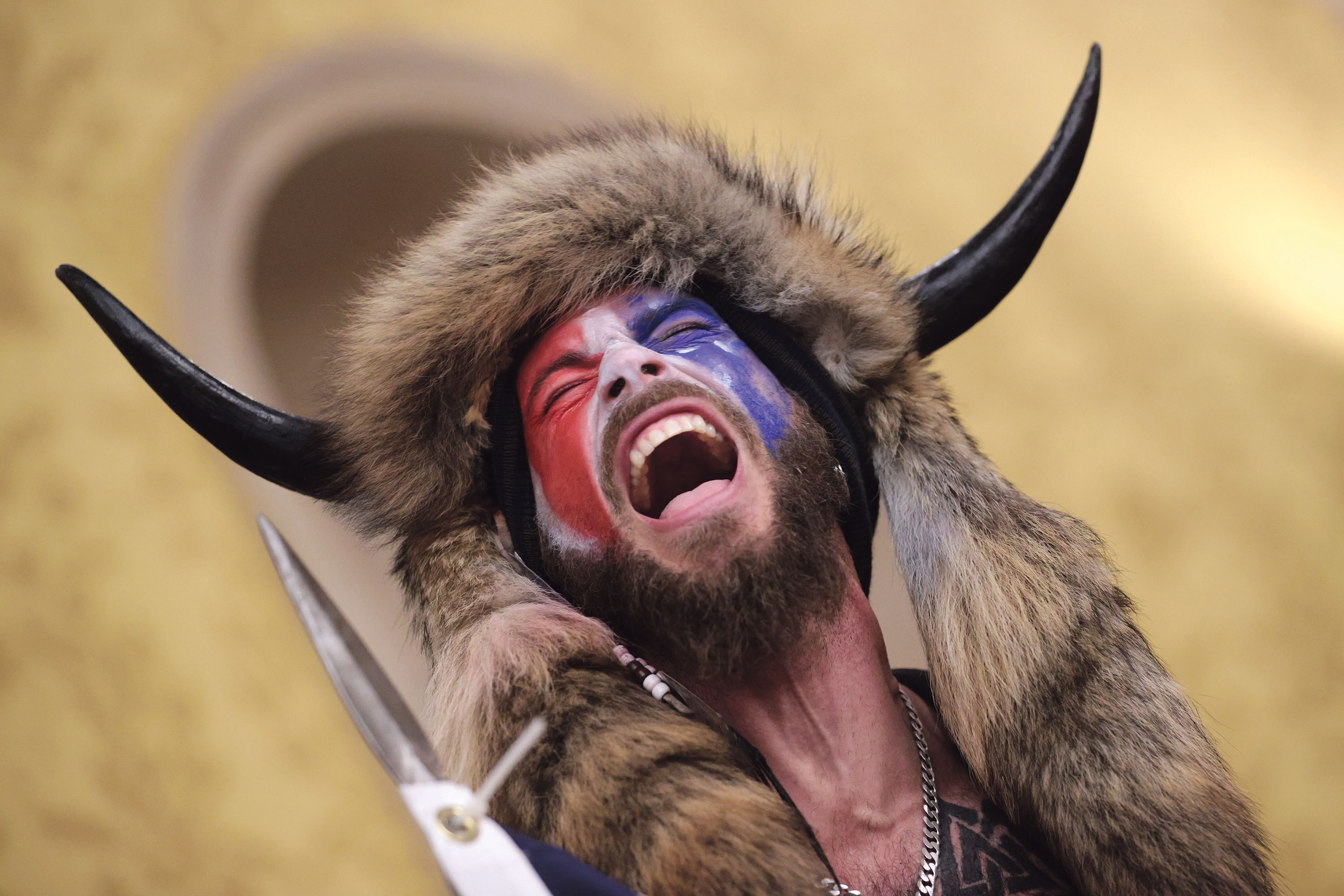
A now infamous protester inside the US Capitol building on 6 January 2021 in Washington, DC. (Photo: Win McNamee / Getty Images)
FEBRUARY: The year’s shortest month brings the seismic news that Kim Kardashian and Kanye West are headed to the divorce court. Also binned: the name “Port Elizabeth”, traded in for “Gqeberha”, to the horror of white people who haven’t yet mastered clicks. The opinion of British monarch Queen Gqeberha on the name change is unknown.

Kanye West and Kim Kardashian West headed for the divorce court earlier this year. (Photo: Roy Rochlin / Getty Images)
MARCH: The first of an annual spate of US mass shootings begins with a massacre in Asian-owned massage parlours in Georgia. Later this year, South Africa’s homegrown gun rights advocates will react with horror to Parliamentary attempts to further regulate private gun ownership.
In the same month, hapless mega cargo ship the Ever Given gets stuck in the Suez Canal for what seems like an eternity, prompting the empathy of everyone who struggles with parallel parking. The results – in terms of disrupted global supply chains – are not at all funny, but social media’s responses to the problem become one of the comedic highlights of the year.
Locally, ANC politicians accused of corruption begin to froth at the mouth when President Cyril Ramaphosa announces they have 30 days to step aside or be suspended. Covid-19 continues to scythe its path through high-profile South Africans, claiming the life of fiery journalist Karima Brown. There is mass mourning in KwaZulu-Natal as King Goodwill Zwelithini passes away at 72.
At his funeral, observers are surprised to see Princess Charlene of Monaco front and centre. At various points in the year to come, Princess Charlene will be reported to be staying in South Africa to help mediate in the Zulu family’s impending succession dispute; to cure herself of a lengthy ear infection; and to help save the rhinos. It will begin to appear as if, perhaps, Princess Charlene is not hugely enthusiastic about returning to the loving embrace of husband Prince Albert in Monaco.

The container ship, the Ever Given, is seen at the Suez Canal on 28 March 2021 in Suez, Egypt. The ship ran aground in the canal on 23 March. (Photo: Mahmoud Khaled / Getty Images)
APRIL: A fire that begins on Table Mountain cuts a devastating path towards the University of Cape Town, burning down the Rhodes Memorial restaurant and the historic Josephine Mill, and necessitating the emergency evacuation of 4,000 students.
Most tragic is the damage inflicted on UCT’s library, which sees its special collections reading room gutted by the blaze. Those objecting to all the fuss about the loss of a stuffy colonial building conveniently ignore the fact that the reading room housed extremely rare African books and the university’s entire African film collection.
Also in April, Britain’s First Lady Prince Philip hangs up his walking boots at the ripe old age of 99, just one year away from receiving a congratulatory telegram from his wife. People reminisce about all the wildly racist things he said over the decades, which the British press dutifully term “gaffes” or “faux pas”.
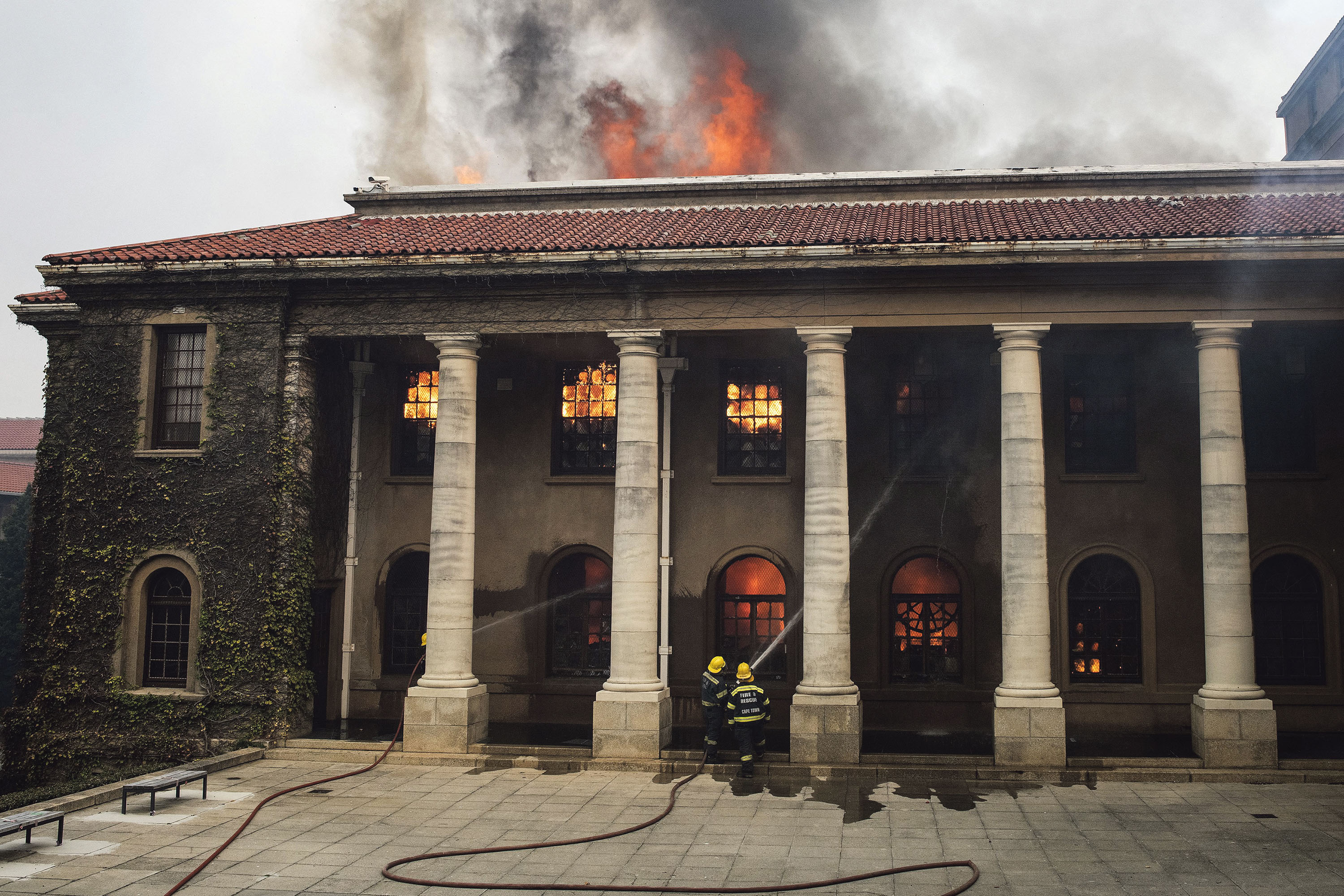
Firefighters try, in vain, to extinguish a fire in the Jagger Library at the University of Cape Town after a forest fire came down the foothills of Table Mountain, setting university buildings alight, in Cape Town on 18 April 2021. (Photo: RODGER BOSCH / AFP)
MAY: South Africa begins its Covid-19 vaccination programme after months of growing panic that not enough vaccines will be secured. Over the course of the year, this particular fear will give way to the slowly dawning realisation that there are too many vaccines and not enough people willing to be vaccinated. Common cause will be found among unusual bedfellows: rich libertarian arseholes and RET saboteurs will be united in their desire to spread anti-vaxx nonsense.
Before Health Minister Zweli Mkhize can sit back and soak up the congratulations for having finally secured some vaccines for South Africa, he is dramatically revealed by Daily Maverick’s Pieter-Louis Myburgh as having channelled millions in emergency Covid-19 funds to family members and friends running the most hilariously named communications company in history, Digital Vibes.
ANC Secretary-General Ace Magashule will be given his marching orders after he refuses to comply with the party’s step-aside rule. ANC Deputy Secretary-General Jessie Duarte, who will grow ever more spicy in her public utterances throughout a year that she is clearly gatvol with, terms his subsequent unsuccessful legal challenges as “absurd”.
In the same month, Israel displaces Palestinians in east Jerusalem, and airstrikes on the Gaza Strip will intensify as Hamas increases retaliatory rockets. Later in the year, a South African beauty queen will once again become the focal point of local arguments about the Middle East, as Miss South Africa opts to attend the Miss Universe pageant in Israel. See also: Shanti Naidoo, 2018.
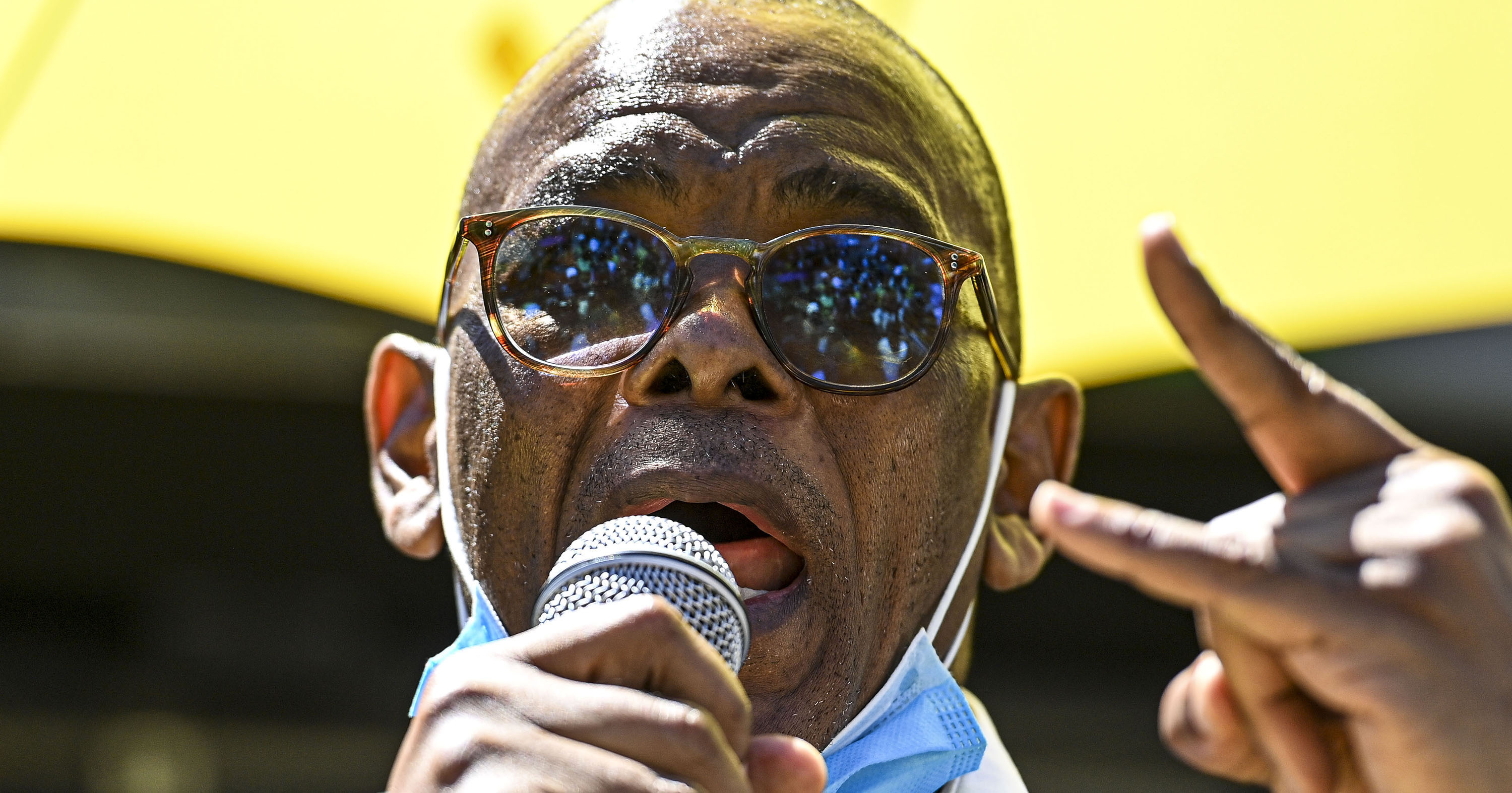
ANC former secretary-general Ace Magashule outside the Free State High Court on 3 November 2021 in Bloemfontein, South Africa. (Photo: Gallo Images / Volksblad / Mlungisi Louw)
JUNE: This month sees the death of one person who brought joy to millions and another person who made millions from play-acting: Shaleen Surtie-Richards and Nigerian megapastor TB Joshua, in that order.
Speaking of unscrupulous hoaxers, June also introduces South Africa to the serialised fiction that will be Independent Media’s story of the Tembisa woman who gave birth to (0) decuplets. As Daily Maverick’s Richard Poplak memorably put it, Independent Media owner Iqbal Survé and journalist Piet Rampedi will soon begin “decupleting” further and further from reality.
The Constitutional Court orders former president Jacob Zuma to go to jail for 15 months for defying the Zondo Commission, allowing national jester Carl Niehaus to do his best impression of one of the apostles holding on to Jesus’s legs as he is dragged from the Garden of Gethsemane by Roman soldiers. Zuma’s daughter Duduzile soon establishes herself as a one-woman Twitter machine, raging against the injustice of it all in erratically capitalised tweets.

SA Police Service members at the special funeral of actress Shaleen Surtie-Richards on 13 June 2021 in Cape Town, South Africa. The veteran actress died at the age of 66. (Photo: Gallo Images / Misha Jordaan)
JULY: Jacob Zuma is eventually persuaded to swap Nkandla for the tjoekie, after a dramatic showdown featuring his visibly drunk son Edward pledging to protect his father with his life. Photographs taken by an enterprising Correctional Services official with a covert camera phone, showing Zuma being checked into his new accommodation, are promptly leaked and promptly condemned by the buzzkill authorities.
Also in this month, the delayed 2020 Olympics finally take place. South Africa is fortunately distracted from its miserable performance in Tokyo by the fact that the country explodes into violence following the incarceration of JZ.
More than 330 people die in KwaZulu-Natal and Gauteng in the days to follow, with TV camera people constantly seeming to be more engaged with the action than police. In the Durban suburb of Phoenix, small groups of gun-toting vigilantes mow down black passers-by seemingly indiscriminately. The DA will later term these people “heroes” in a widely decried election campaign. The DA will also win this ward decisively, because there’s a reason populism is called populism.
As a comforting reminder that chaos is global, the Haitian president is also assassinated this month.

The aftermath of the riots at Chris Hani Mall during pro-Zuma attacks on 13 July 2021 in Vosloorus, Gauteng. (Photo: Gallo Images / Sharon Seretlo)
AUGUST: South Africa licks its wounds from what President Cyril Ramaphosa gravely asserts was an “insurrection”. This sounds very serious, but in the months that follow almost nobody will be held accountable for inciting the insurrection – possibly because there is credible evidence that among the ringleaders are members of the president’s own party.
In this month, all the action shifts across the world to Afghanistan, where the US finally gives up on doing whatever it thought it was doing there and withdraws its troops. This causes the instant fall of Kabul to the Taliban, who quickly get busy re-creating the plot of The Handmaid’s Tale in real life.
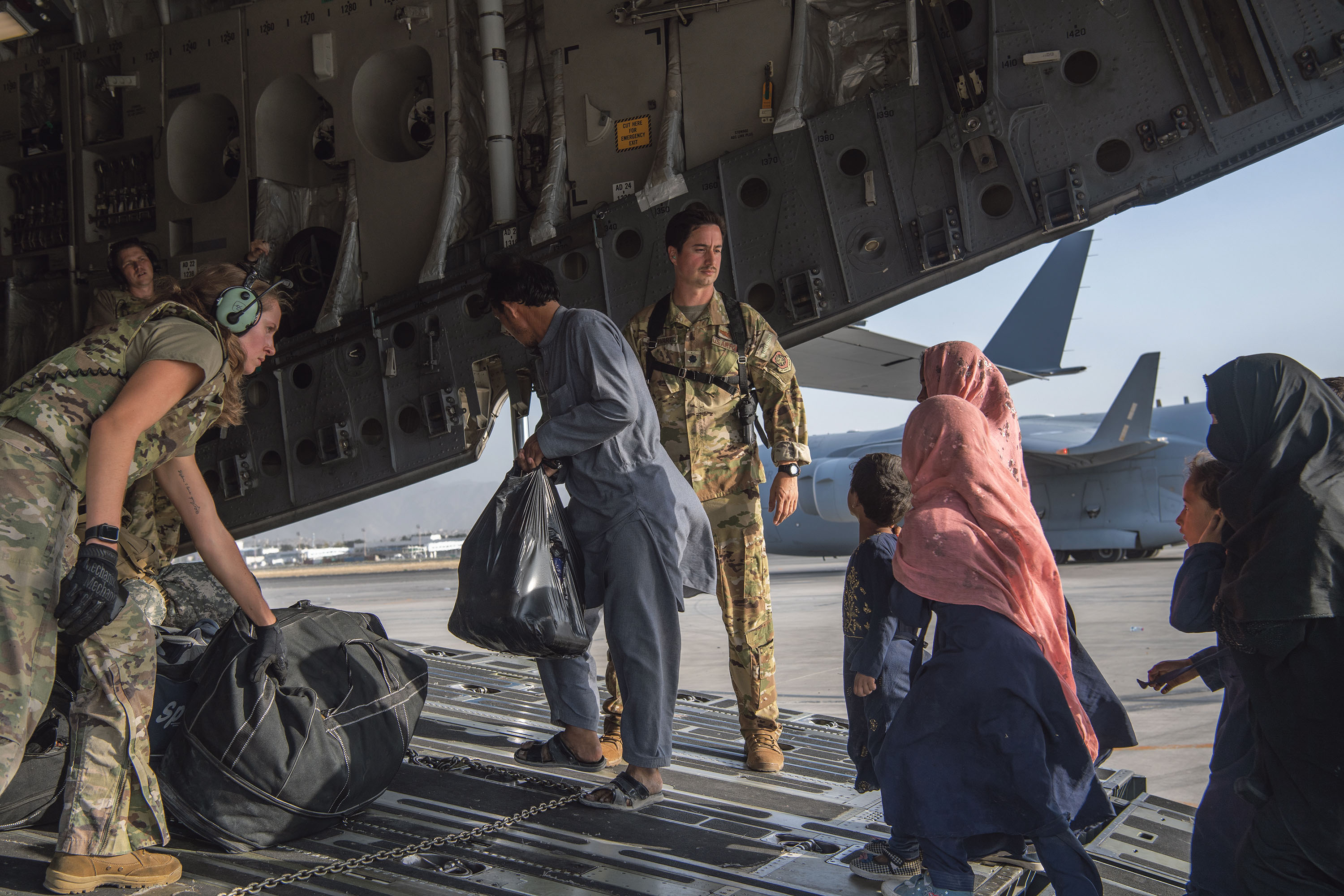
US Air Force loadmasters and pilots assigned to the 816th Expeditionary Airlift Squadron load passengers aboard a US Air Force C-17 Globemaster III in support of the Afghanistan evacuation at Hamid Karzai International Airport on 24 August 2021 in Kabul, Afghanistan.(Photo: Master Sgt Donald R Allen / US Air Forces Europe-Africa via Getty Images)
SEPTEMBER: South Africa loses the head of its National Freedom Party, Zanele kaMagwaza-Msibi, to Covid-19. Johannesburg’s recently installed ANC mayor Jolidee Matongo dies in a car crash two weeks later.
The IEC’s attempt to have the local government elections postponed to 2022, because of Covid-19 and the fact that almost nobody except the DA is really lus, is shot down by the Constitutional Court. Amid general chaos, fuelled by ANC staff who aren’t keen to work overtime to submit candidate names because their salaries keep disappearing, the IEC cobbles together South Africa’s largest candidate list.
Zuma is released from prison on “medical parole”, which South Africans now understand is code for “dodgy reasons”. It will soon be announced that the country’s previous most high-profile convict, murderer Oscar Pistorius, is also coming up for release any day now.
OCTOBER: The release of the Pandora Papers confirms what everyone knew already, namely that super-rich people would rather kill their own mothers than pay meaningful amounts of tax.
Also this month, the World Health Organization (WHO) announces one of the few genuine pieces of good news for 2021: the development of a promising malaria vaccine. Due largely to Donald Trump’s irrational hatred of the WHO, unfortunately everything the global health body now says is drowned out by maniacs screaming over them on Twitter.
Separately in health-related news, the UK finally announces that it is taking South Africa off its “red list” of banned countries because of Covid-19, on which list South Africa has languished for month after unnecessary month despite having Covid-19 rates that are a fraction of the UK’s own. “Finally, I can book my tickets to the UK/South Africa and enjoy an emotional family reunion!” rejoice millions of people. (This is dramatic foreshadowing.)
NOVEMBER: Local government elections are held, in which the major takeaway is that South Africans of all stripes are truly sick of politicians of all stripes. The DA emerges from the post-coalition wrangling with four mayors in South Africa’s eight major metros: a tremendous achievement attributable perhaps partly to the fact that other parties threw in the towel rather than have to take another phone call from Helen Zille.
The DA’s mayors in Johannesburg and Ekurhuleni are installed precariously by the grace of the EFF, who can be expected to come knocking with reciprocal demands sooner rather than later.
South Africa’s last apartheid president, FW de Klerk, kicks the bucket and what follows is a predictably tedious analysis of his chequered legacy. De Klerk himself is revealed to have had a pathological case of “the need to have the last word” when it is revealed that he recorded a video message to South Africans only to be released after his death, when nobody could talk back to him or sue him for apartheid deaths.
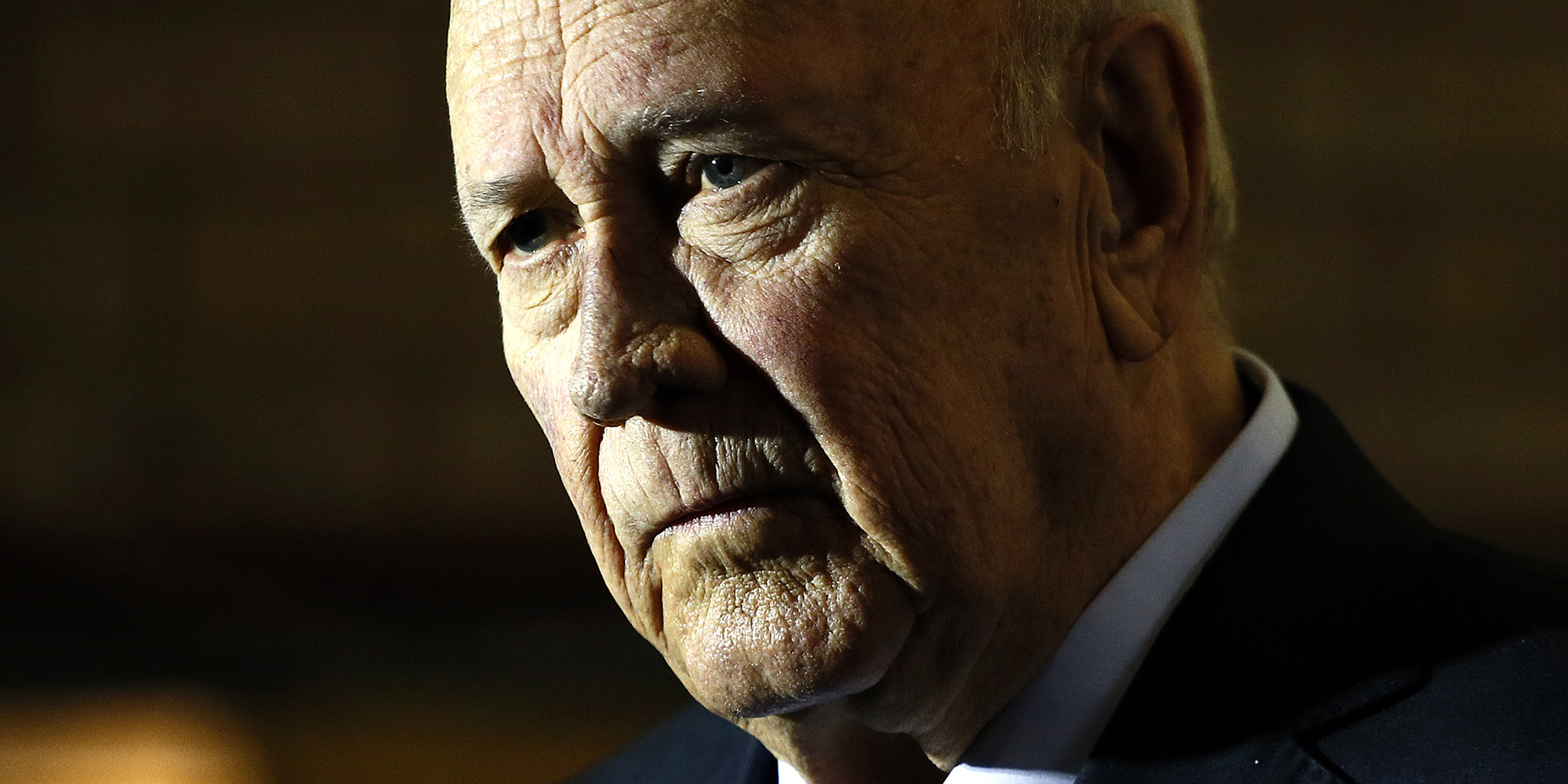
Former president of South Africa FW de Klerk died on 11 November 2021. (Photo: Gallo Images / Phill Magakoe)
With Covid-19 rates seemingly firmly on the downhill and South Africa’s favourite festive month of December around the corner, the country is finally allowing the green shoots of a celebratory spirit to appear. What could go wrong? (This is also dramatic foreshadowing.)
What could go wrong, it turns out, is that South Africa’s skilled epidemiologists could announce to the rest of the world that they have detected a worrying new Covid-19 mutation, soon to be called the suitably ominous Omicron.
The rest of the world will promptly respond by banning travel to and from sub-Saharan Africa in a breathtaking display of both scientific ignorance and, arguably, racism.
On the plus side, South Africans experience a rare moment of togetherness as they unite in rage against the Western imperialists who led the way, while also being quite worried that the government will ban booze again.
Fortunately Ramaphosa, in one of his now-dreaded family meetings, announces that the government will do absolutely nothing about the new variant except continue to ask nicely that South Africans get vaccinated, pretty please.
DECEMBER: Just sit tight and pray nothing else happens. DM168
This story first appeared in our weekly Daily Maverick 168 newspaper which is available for R25 at Pick n Pay, Exclusive Books and airport bookstores. For your nearest stockist, please click here.

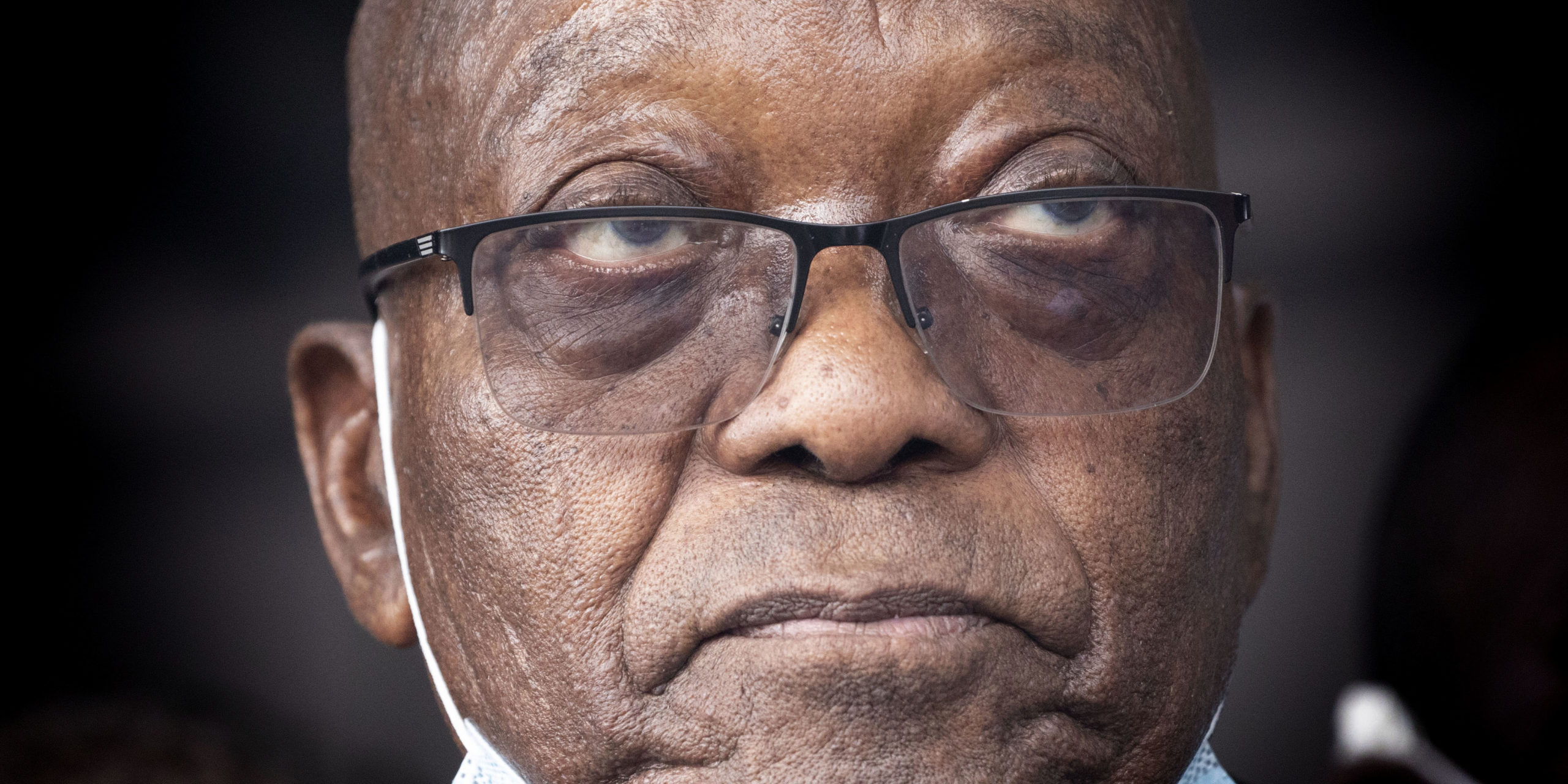
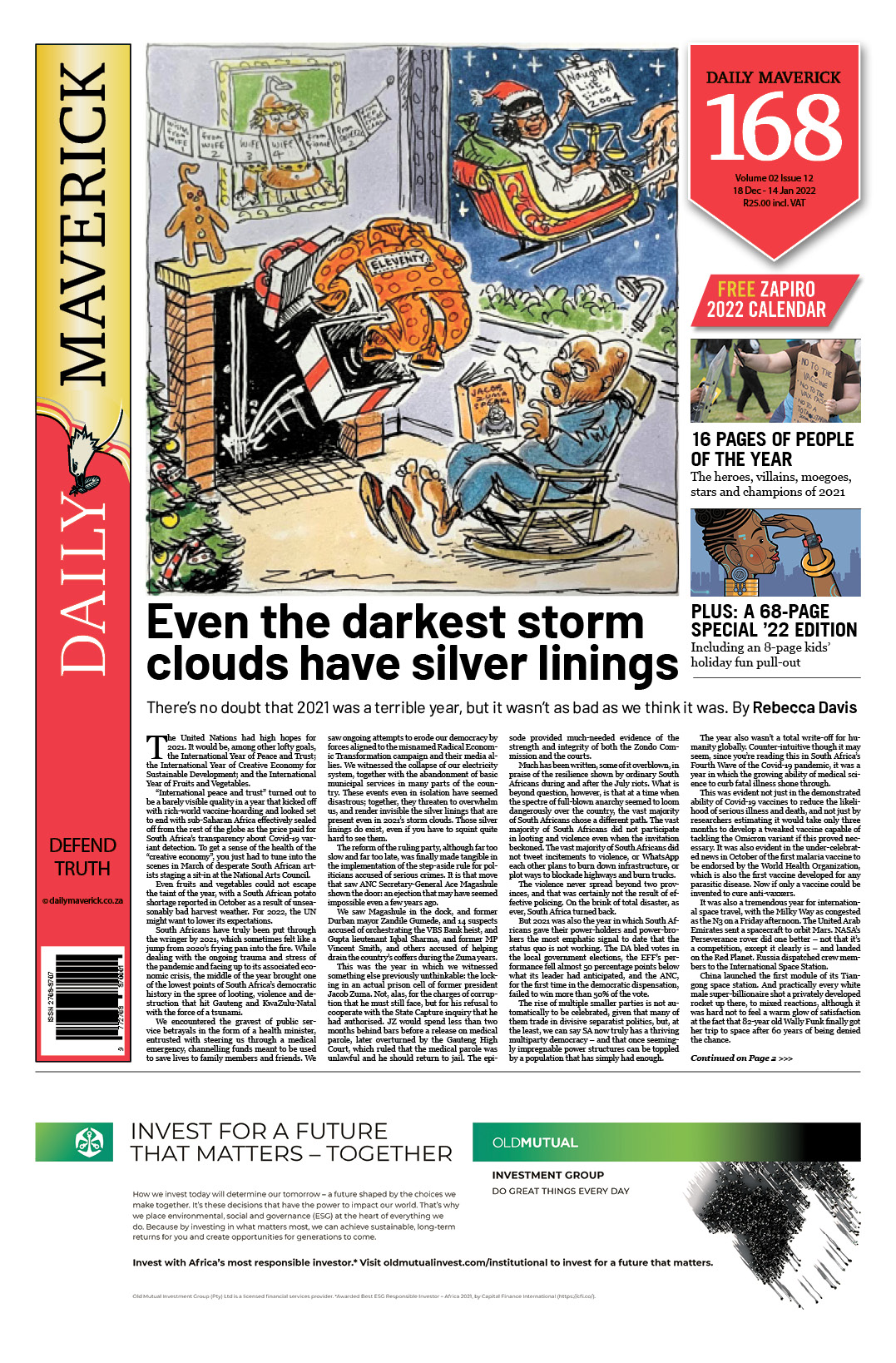


















 Become an Insider
Become an Insider
Comments - Please login in order to comment.